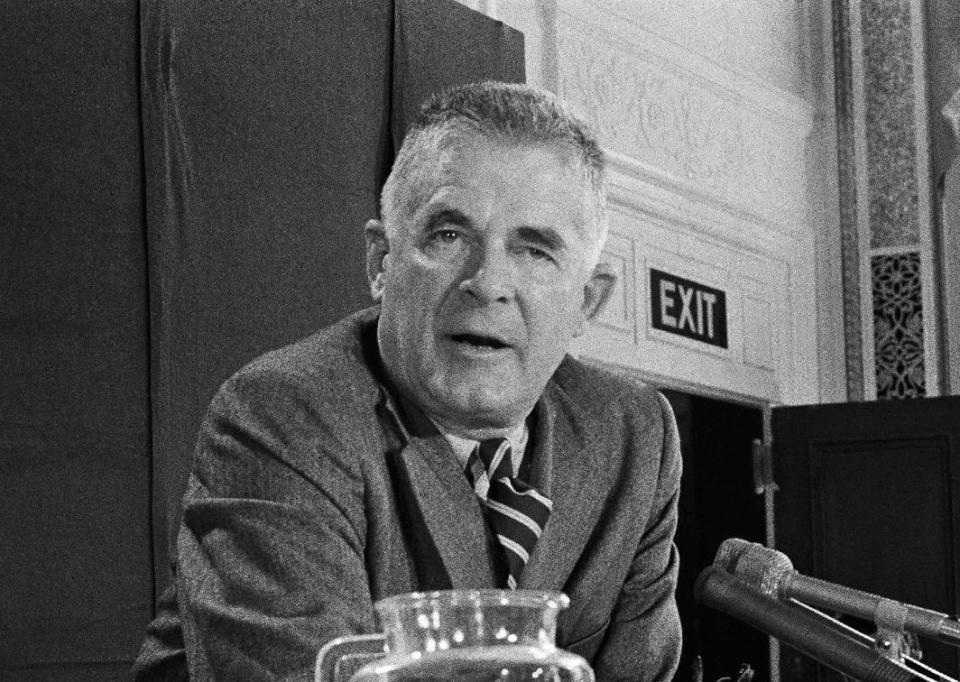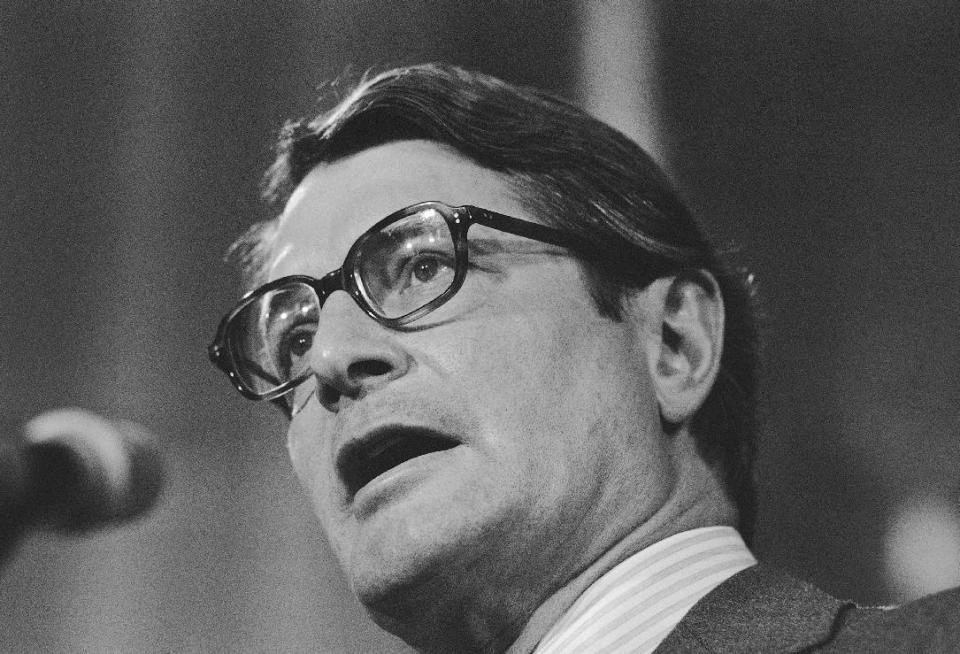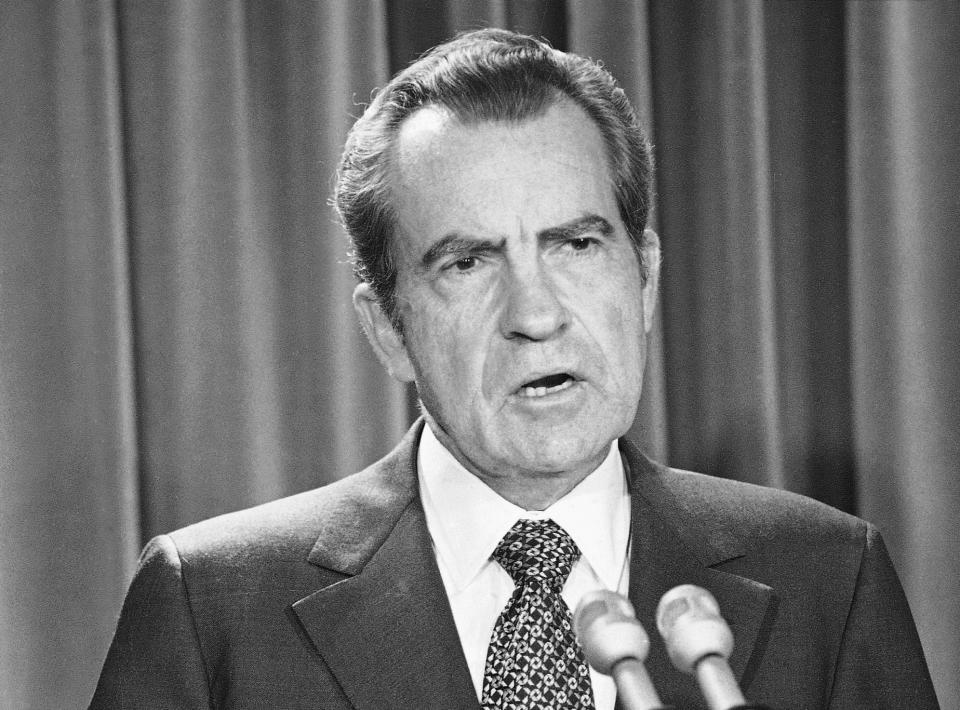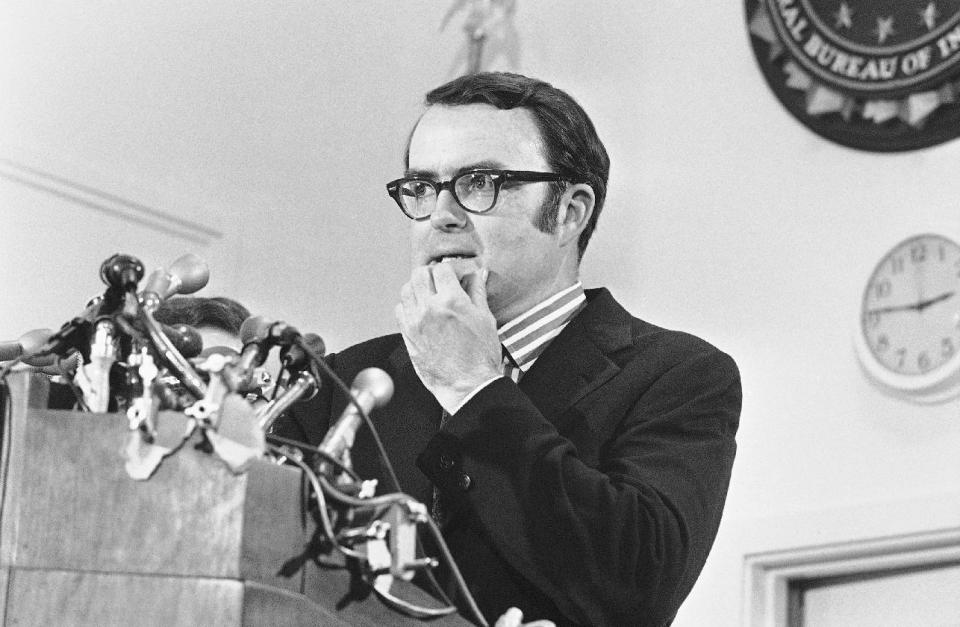Watergate echoes in Yates firing, but parallels are limited
WASHINGTON (AP) — Comparisons to the Nixon-era "Saturday night massacre" were swift after President Donald Trump fired the acting attorney general for refusing to enforce his executive order on immigrants and refugees.
In both cases, a dispute between a president and his Justice Department led to an evening maneuver by the president to install an acting attorney general more to his liking.
"There's a political component to both: The Department of Justice wasn't playing the president's game," says historian Luke Nichter, an expert on the Nixon years.
Dig deeper, though, he says, and the two situations quickly diverge.
Trump acted within his authority to remove an acting official who was destined to be replaced soon anyway by his new attorney general.
Richard Nixon, by contrast, went three-levels deep into the Justice Department to find someone willing to fire special prosecutor Archibald Cox, who was closing in on Nixon's White House in his investigation of the Watergate break-in and cover-up.
A look at details of the two cases:
TRUMP-SALLY YATES
Trump's executive order temporarily suspends the U.S. refugee program and bars entry for citizens of seven majority-Muslim countries for three months.
With a number of federal judges questioning the constitutionality of the order, Acting Attorney General Sally Yates, a career prosecutor and holdover from the Obama administration, on Monday ordered Justice Department lawyers to stop defending it. She questioned whether the order reflected the department's obligation to "always seek justice and stand for what is right."
The White House quickly accused Yates of betrayal and Trump fired her. He replaced her Monday night with Dana Boente, U.S. attorney for the Eastern District of Virginia, who pledged to enforce the president's order. Boente will serve until Trump's nominee for attorney general, Sen. Jeff Sessions, wins expected Senate approval.
NIXON-SATURDAY NIGHT MASSACRE
This was a constitutional drama of the highest order over the limits of executive privilege, with Nixon already under threat of impeachment.
Nixon ordered Cox fired in October 1973 for his continued efforts to obtain tape recordings made at the White House, important evidence in the Watergate investigation. Cox said he would not bow to "exaggerated claims of executive privilege" and drop his pursuit of the tapes.
Attorney General Eliot Richardson refused to carry out Nixon's order to fire Cox and resigned in protest. Richardson's deputy, William Ruckelshaus, also wouldn't fire Cox, and he resigned as well. Next, then-Solicitor General Robert Bork, the third-ranking official at Justice, fired the prosecutor.
The law at the time wasn't clear on how to fire a special prosecutor unless there was clear wrongdoing, according to Nichter.
In his memoirs, Nixon said he thought it was "tasteless" for some to compare his action to Hitler's 1934 purge of political and military rivals known as "The Night of the Long Knives."
Ruckelshaus, 84, in an interview with The Seattle Times, drew a distinction between being asked to thwart an investigation into the president and being asked to defend the president's policy in court.
As for Trump, "If he ordered her to carry out one of his orders, and she refused to do it, he doesn't have an awful lot of choices if he wants the order carried out," Ruckelshaus said. He added that he would caution Trump to "exercise a little more care in these types of orders. Because they can end this way, and that doesn't help him discharging his responsibilities."
___
Follow Nancy Benac on Twitter at http://twitter.com/nbenac




